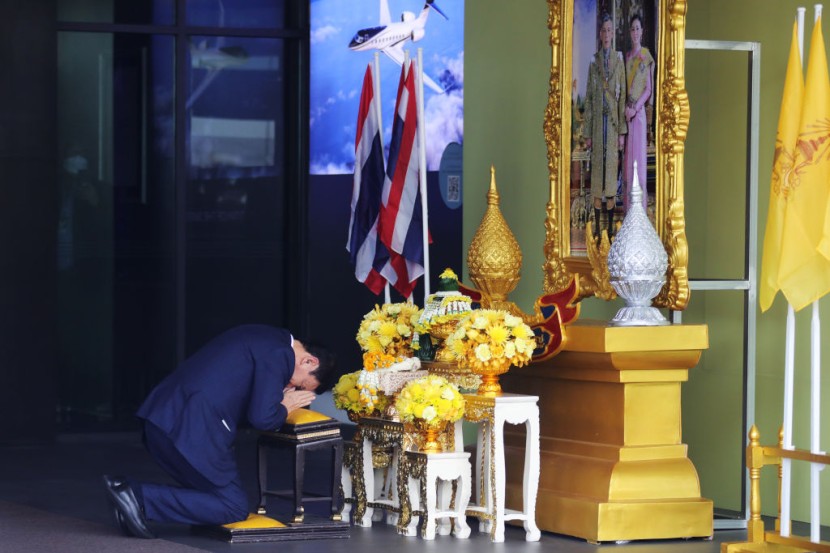
Thailand's monarch, King Maha Vajiralongkorn, commuted the prison sentence of former Thai prime minister Thaksin Shinawatra from eight years to a single year Friday (September 1) after his return from a 15-year self-imposed exile.
As Thailand is a constitutional monarchy, the king has the prerogative of pardoning prisoners or reducing their sentences. The king's decision was published in the Royal Gazette, making it effective immediately.
"[Thaksin] was a prime minister, has done good for the country and people, and is loyal to the monarchy," the decree wrote."When he was charged and convicted by the court to the mentioned imprisonment sentence, with his respect in the justice system, he confessed and regretted to his acts. He was willing to serve the sentence while being elderly and having health issues and sickness that must be treated by specialist doctors."
The decree granted to the 74-year-old former prime minister, signed by outgoing prime minister Prayuth Chan-ocha, said the action was taken in order for him to be able to contribute to Thai society.
Outgoing deputy prime minister and acting attorney-general Wissanu Krea-ngam said Thursday (August 31) that he received Thaksin's letter requesting for royal pardon on medical grounds.
Thaksin's Rise and Fall
Thaksin was ousted as prime minister in a military coup in 2006 and was accused of corruption, abuse of power, and disrespecting the monarchy, prompting him to flee from Thailand in 2008 when he was threatened with imprisonment on charges he described were politically motivated.
Prior to this, he was a media mogul and used his fortune and influence to build his own party, which is now morphed into the name Pheu Thai and won as the populist ticket in both 2001 and 2005.
Because of his populist stance, many traditional royalists were threatened by his popularity, which sparked protests and riots. Political parties with his backing continued to win elections but were forced from power several times by the courts and the military, which solidly backed traditional monarchist ideologies.
Upon Thaksin's return, he was immediately sent to prison but was quickly transferred to a state hospital for health complications, such as high blood pressure and low oxygen.
It was widely believed Thaksin was hoping his return to Thailand would prompt a government friendly to him and would reduce his sentence in exchange for a deal with authorities. Hours after Thaksin's return, Pheu Thai's Srettha Thavisin was selected by parliament as the new prime minister after three months of political uncertainty following May's general election.
© 2026 HNGN, All rights reserved. Do not reproduce without permission.








